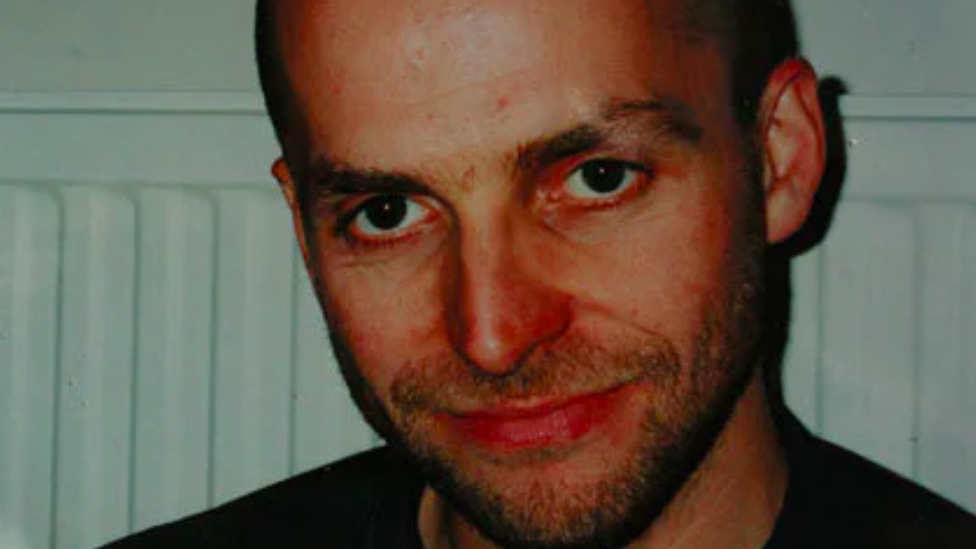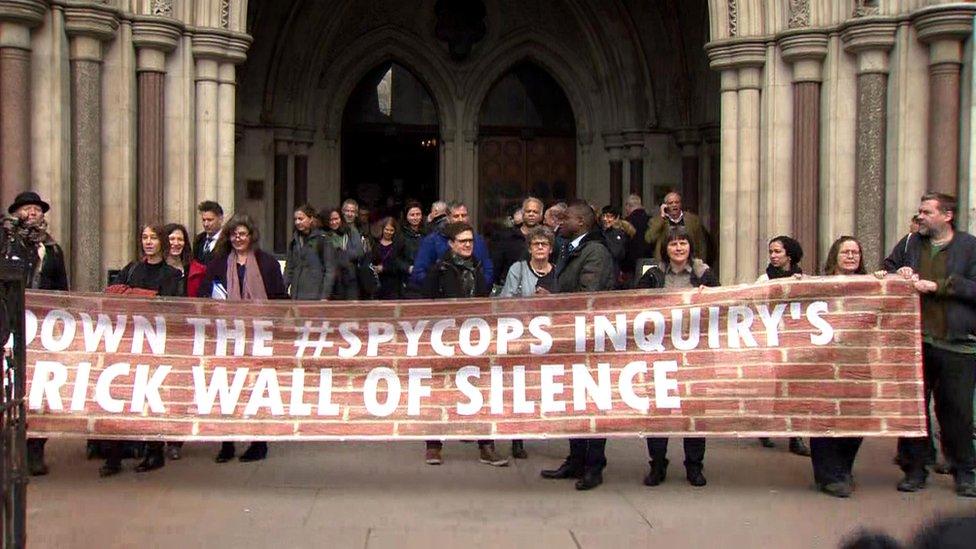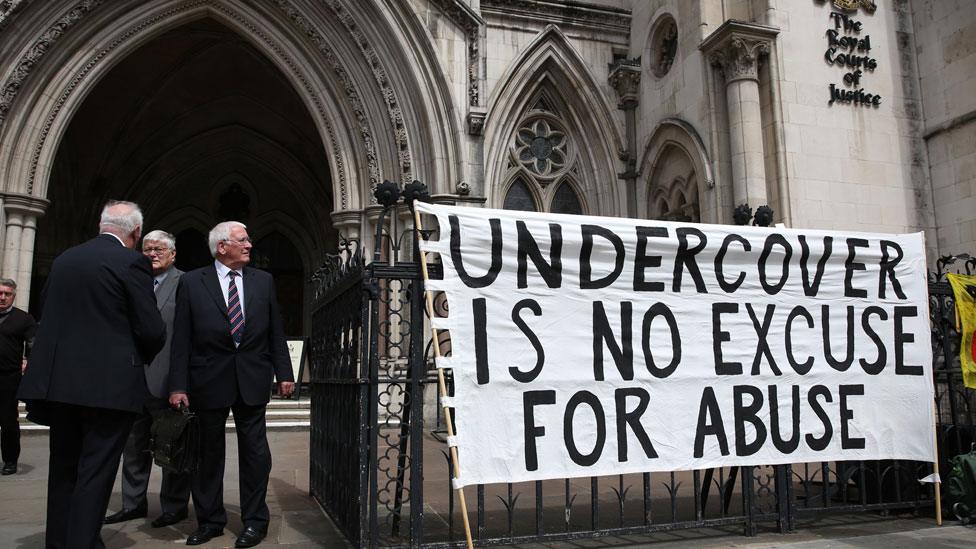Undercover officer won't face prosecution over relationship
- Published

The CPS has said there are no grounds to prosecute the officer
An environmental campaigner who says she was tricked into a sexual relationship with a former undercover police officer has said she is appalled that a legal attempt to force his prosecution has failed.
The woman, known only as Monica, was in a relationship for six months with former DC Jim Boyling - and says she would never have consented to sex had she known his true identity.
Mr Boyling, whom Monica knew in 1997 as Jim Sutton, posed as a fellow activist as part of a plan by a secret Scotland Yard unit to infiltrate Reclaim the Streets, an environmental protest group.
But in a detailed judgement, the Lord Chief Justice Lord Burnett said that while the High Court recognised the strength of Monica's feelings that she had been tricked, the court could not intervene in the Crown Prosecution Service's decision not to charge Mr Boyling with a crime.
Three years ago, Scotland Yard settled a string of cases where it admitted that women had been subjected to an abuse of police power and violation of their rights, after they were tricked into relationships with SDS officers.
And in 2017, the Crown Prosecution Service said there was insufficient evidence to prosecute Jim Boyling for a sexual offence or misconduct in public office.
"Monica", environmental campaigner
In their judgement, the Lord Chief Justice and Mr Justice Jay said that the CPS lawyer who ruled out prosecuting Jim Boyling had been entitled to conclude that a jury would not convict him of a crime.
One of the key issues for a trial would be whether Mr Boyling intended to deliberately misconduct himself by beginning the relationship with Monica - and that would be impossible to prove.
"There is no reason to doubt the strength of the claimant's feelings," said the judges.
"The narrow issue for the court is whether the Director [of Public Prosecution's] decision not to prosecute is legally flawed.
"The circumstances in which this court may properly intervene... are circumscribed."
In a statement, Monica said the decision had been hard to hear.
"Employing well paid state actors to infiltrate the lives, hearts and beds of women activists working toward positive social change, is as much an abuse of state power as it is of individual human rights," she said.
"It is appalling, yet telling, that the High Court Judges feel unable to acknowledge this."
Last May, the Metropolitan Police sacked the officer.
Mr Boyling's activities - he had relationships with three women while undercover for the Special Demonstration Squad - will be examined in a much-delayed public inquiry.
And Harriet Wistrich, Monica's lawyer, said the criminal law needed to be clarified on deception and consent in sex.
Ms Wistrich said: "[The law] leaves it open to the state to continue to utilise sex as a weapon in their undercover arsenal with impunity and leaves women open to very frightening abuses of power for the foreseeable future."
She argues the CPS should consider whether Mr Boyling should be prosecuted on the same legal terms as two women who were convicted of sexual assault by deception.
Gayle Newland and Justine McNally were separately convicted after they impersonated men in what were otherwise consensual sexual encounters with women.
- Published1 May 2018
- Published21 March 2018

- Published20 March 2018

- Published15 February 2018